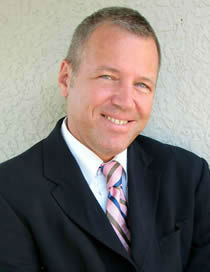
Spirituality
In my experience, people tend to rule out Worldwide Apostasy as incompatible with God's plan, even if they are hesitant to embrace Triumphalism. Why that should be is an interesting question.

Pakaluk
Which of these two scenarios do you tend to believe, or regard as nearest to the truth?
Scenario one: We have not yet seen the full flourishing of Christianity. The Christian faith, mainly through the Catholic Church, will continue to spread throughout the world, so that eventually nearly everyone becomes Christian. In some areas of the world, even, a new Christendom, as in Europe of old, will be established. Things will continue like that until the end of the world, with the Christian faith occupying the whole world. Call this picture, "Triumphalism."
Scenario two: We have seen the fullest flourishing of Christianity as a public religion already. Europe began attacking Christianity and shedding its Christian commitments during the Enlightenment. Centuries of "liberalism" compounded by harsh wars have extended the dominance of a public atheism. Vatican II was a good gambit to reverse this trend, but it evidently has failed. As for the Catholic Church, seems in practical schism now, and only a small minority believe its teachings. We can look forward to the continuation of the same trend: an increasing loss of faith and the near extinction of Christianity as a public presence in centuries to come. Call this picture, "Worldwide Apostasy."
Perhaps more important than which you accept is whether you are prepared to rule out one of these two scenarios. In my experience, people tend to rule out Worldwide Apostasy as incompatible with God's plan, even if they are hesitant to embrace Triumphalism. Why that should be is an interesting question -- more on that later.
Of course, let's agree at the start that, regardless of which scenario might prove to be true, the constant teaching of saints remains true today: my task and yours, today, is to seek holiness as strenuously as possible, relying on the grace of the sacraments, and to spread the good news with generous, apostolic zeal. Moreover, we should do so with optimism, confident that, whatever circumstances we find ourselves in, we can rest assured that these are the best times for us to be alive.
I suspect that faithful Christians, holding to this optimism, tend to combine the two scenarios. They hope for the one, but they are not surprised by and even plan on the other. It is said that Popes John Paul II and Benedict differed in this regard, that the Polish pope expected a "new springtime" of the faith given the "New Evangelization"-- and the millions of persons who flocked to his Masses might have seemed, to observers, to confirm such an expectation -- while the German pope held that the Church had to prepare to become a small, constructive minority. And yet, there are well-known "apocalyptic passages" in John Paul II, never mind his warnings of an insidious "Culture of Death." And Pope Benedict's writings throughout are shaped by conversions. Both seemed to believe that the Church's growth was a miraculous rebirth against rational expectation, often a special grace won by the blood of the martyrs.
In my column in the Pilot last month, I explained how St. John Henry Newman's famous "Biglietto Speech" has a theme most people don't recognize. Many are aware that he declared then his lifelong opposition to "liberalism" in religion. But few recognize that he also lamented the arrival of what he called "the Great Apostasy." There are expressions of hope for the future, as in his bracing sermon, "The Second Spring." But there, again, he supposes any remarkable rebirth of faith in Britain would be based on martyrdom. "If it be God's blessed will, not Saints alone, not Doctors only, not Preachers only, shall be ours -- but Martyrs, too, shall reconsecrate the soil to God ... It is not God's way that great blessings should descend without the sacrifice first of great sufferings. If the truth is to be spread to any wide extent among this people, how can we dream, how can we hope, that trial and trouble shall not accompany its going forth?"
His considered outlook was that the Great Apostasy would continue to grow until the Christian faith, and lamentably even the sacrifice of the Mass, were almost completely, if not completely, wiped off the face of the earth. In a fascinating small book from 1861, dedicated to Newman, Cardinal Manning expounds such a view at length, with frequent quotations from the Fathers: "The Present Crisis of the Holy See Tested by Prophecy."
Now, we must admit not only that such a thing could happen; but also that there are many trends to indicate that it is happening; and moreover, that there are sayings of Our Lord which indicate that it will happen: "When the Son of man comes, will he find faith on earth?" (Luke 18:8).
Therefore, why do so many of us simply rule out the scenario Worldwide Apostasy from the start? I ask this as a matter of self-understanding and implicit philosophy.
One reason is that a Christian naturally associates Christian faith and progress. He reasons (mistakably) that, since the Christian outlook gave birth to modern science (see Father Stanley Jaki, "The Savior of Science"), then science and technology cannot continue without Christianity. Or he regards modern science and technology as "enlightening" in some vague way, and then supposes that these must support Christianity, which is enlightening in its own way.
Or perhaps he is a universalist and thinks that all will be saved, and that therefore the "proper" extension of Christianity is the whole world. He may even hold implicitly that if Christianity has not yet extended to the whole world, then Christianity should have changed a long time ago so that it can become something everyone can accept.
Or perhaps he thinks Christ must succeed, and he won't have succeeded unless the whole world becomes Christian. These are evidently foolish thoughts once stated. Christ said only that the gospel must be preached to all the nations (Mk 13:10), and that has happened.
So, do you still want to hold that Worldwide Apostasy is impossible?
- Michael Pakaluk is Professor of Ethics and Social Philosophy in the Busch School of Business at The Catholic University of America. His book on the gospel of Mark, ‘‘The Memoirs of St. Peter,’’ is available from Regnery Gateway.
Recent articles in the Spirituality section
-
He saw the cloths and believedBishop Robert Barron
-
God's instrument for viewing the crucifixionMichael Pakaluk
-
QuinquagesimaMichael Pakaluk
-
Pro-life Christians: Now is the time to shout from the rooftopsBishop Robert Barron
-
Seeking an indulgence as an act of faithMichael Pakaluk


















